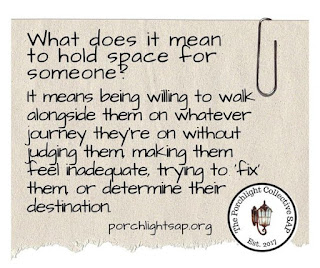A Facebook friend of mine posted the following meme the other day:
Today's New York Times ran a long article on the increasing numbers of people who are living alone later in life in the United States. The article says that in 1960, about 13 percent of American households had a single occupant and that that number is now about 30 percent, with households headed by someone 50 or older hitting 36 percent. That's almost 26 million people in the U.S. 50 or older living alone. Twenty-two years ago that number was 15 million. The U.S. isn't alone in this, and countries with stronger collective or cooperative cultures are having similar or worse crises.
I am not saying that all of these single people are lonely or unfulfilled or somehow deficient. I m saying that we have no way to know about loneliness because it is one of those feelings or states of mind that we dismiss. We don't want to hear about your loneliness, or even our own. Go out and join a group or go to a bar or join a church. Reconcile with your ex or your sister. You wouldn't have this problem if you hadn't up and quit your job or gotten fired for complaining or getting sick. And so it is that people bury what they're feeling.
Many of us do not leave the world of daily human interaction without a shove. A younger coworker once told me that I was "ageing out" and should move on. I was denied a job more recently because the interviewer thought that I could not climb stairs (I can). I have represented many older workers in grievance meetings who had been told by their bosses or HR that it would be better if they moved out and moved on. The humiliation that comes with that overrides loneliness and makes it something else.
When we hear about the large numbers of older single people living alone we most often hear about it in any of three ways: how is Social Security going to continue, how is healthcare going to be managed, or how can the retirement age be readjusted. These are important policy issues, but I don't think that the problem is with policy in the first place.
There is this persistent myth that Americans have been geographically mobile by choice since the late 1940s, searching for and usually succeeding at upward mobility and acquiring things. The flipside of that coin was the Easy Rider myth of lone rebel. It might be more true to say that large numbers of people left their hometowns in search of work and that upward mobility and owning more have not been shared equally across the population. There have been notable economic and political crises since the late 1940s that uprooted large numbers of people and destroyed communities. There were more people thrown under the bus than took to the road to "discover America" with Jack Kerouac or Peter Fonda.
And even when and where work was steady and people could form stable communities, the more and the harder we worked the more insecurity and poverty we created. More coal got mined with longwalling, but each longwall machine put lots of mine workers out of work. More homes got built in suburbias, but the pre-fab and standardized housing put skilled carpenters and bricklayers out of work. Imported clothing usually meant lower prices and more choices, but it put textile workers and garment workers in the U.S. out of work or caused their work to be deskilled. The use of expanded credit and credit cards meant more consumption, but it has also meant more debt. Our forms of entertainment today, and for some time now, have separated us and made us strangers to one another. We have lived as if this moment of isolation and loneliness would never arrive. We have suffered in silence or turned to self-help programs, drugs, alcohol, or whatever else might ease our pain, and most of us suspect that we are to blame for our isolation and loneliness. It's all the result of bad choices I made, isn't it? I have to take responsibility and move forward, forget the past, be positive, and go to work. I'm supposed to be independent. Life is a gamble.
No.
This can become a time of rediscovery. You do not have to live alone and die alone when there are so many others around you who have the same fears and the same needs that you do. It will be difficult to give up what we think of as independence, which is more often forced isolation, and learn cooperation, but the alternative is far worse. We have had to learn the phrase "deaths of despair" over the last fifteen years or so. Now we are learning "resilience." Could we not learn "vulnerability," "commonality," "cooperation," "faith," and "solidarity" instead?
The Facebook friend who posted the meme above also posted this:
Most of those are positive things that are best done with others. I might question the dangerous sides of seeking sensory pleasures without moderation, but perhaps the best forms of moderation come through other people who care enough to help one another and set healthy boundaries.
Don't be afraid to say that you're lonely. Don't be afraid to reach out to others.







.jpg)
























